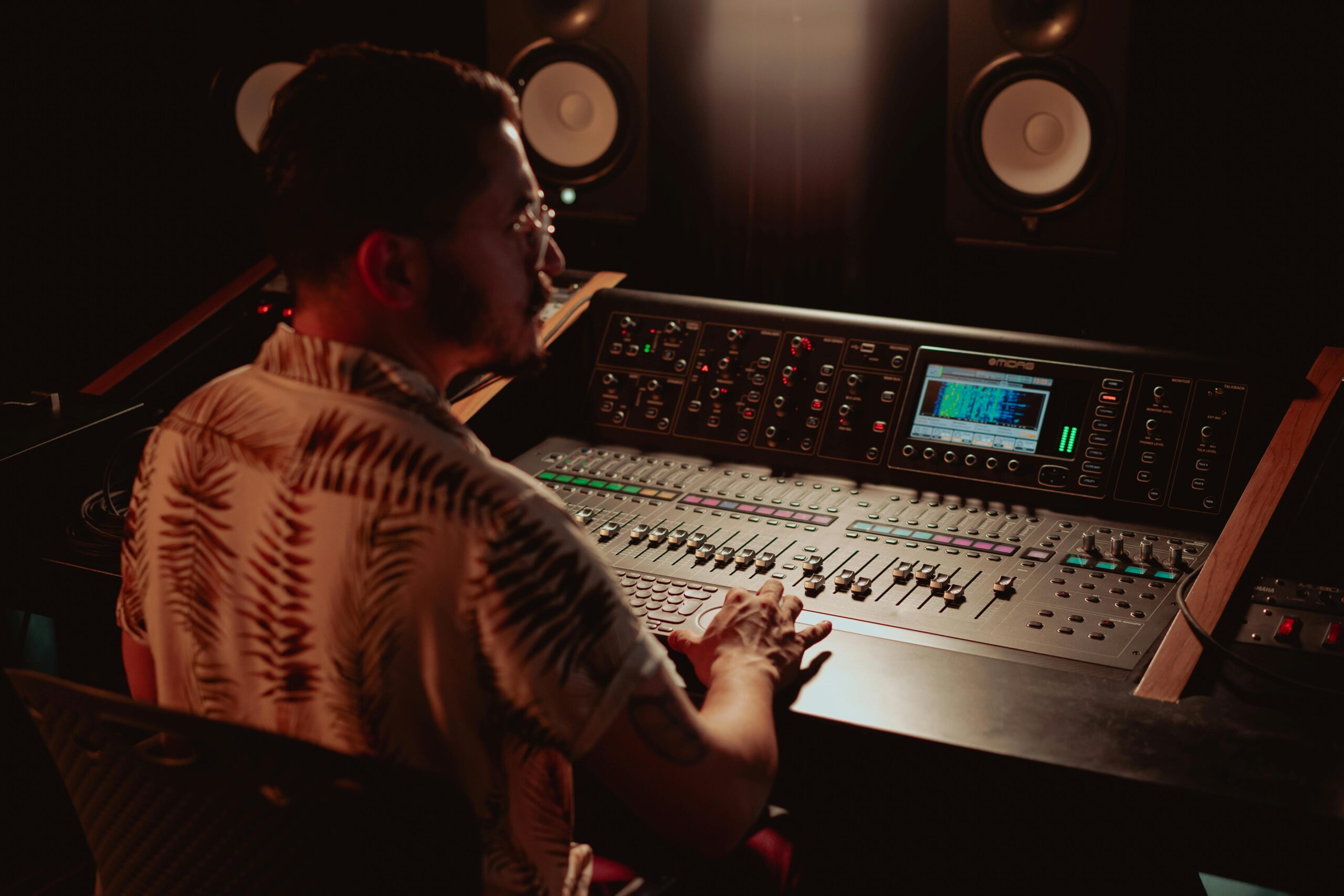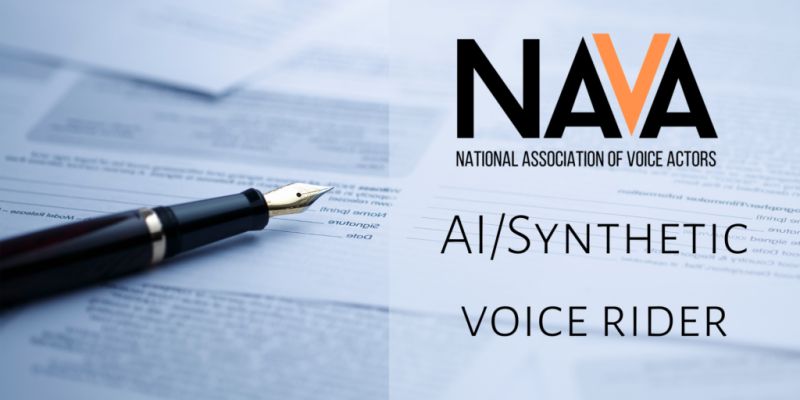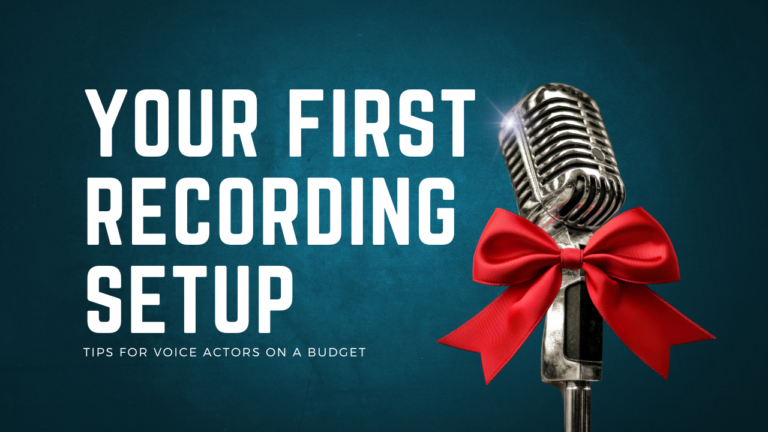If you clicked on this Blog post, chances are you’re at least a little worried that AI might come for your jobs. Well, I’d like to let you know that you can calm down- it’s not happening today. BUT let’s not stick our heads in the sand. Ignoring innovation and advancements in technology until it’s too late is a bad idea, so it’s up to us as voice actors to stay ahead of the curve.
But how, you ask? Keep reading, dearest reader. There also might be a bonus for you at the end of the post (spoilers: there’s definitely a bonus at the end of the post)
An Inside Look
Not too long ago, I got the chance to spend some time peeking behind the curtain at an AI voice generation company. We got into the weeds of what the technology could and couldn’t do. I even listened to all kinds of samples and looked into the technology itself.
Keep in mind, this is a leading technology company that has been working on this sort of stuff for a long time. We’re not talking about a random crypto miner with a garage full of rigs who finally gave up NFTs for AI. Now, I do want to say- folks are calling everything AI that’s done by a computer. It’s a bit ridiculous, and here’s why: If it does not teach itself, it’s not an intelligence; it’s just a computer program. It’s not some magic pill that will solve all of our problems. So an AI voice is not the same as a synthetic voice. In fact, there really aren’t any AI voices. The voices people call AI are actually synthetic voices. Static interpretations that need A LOT of direct teaching from humans to get the performance they’re looking for. With the models I saw, even a few sentences could take hours of manipulation within the engine in order to get a performance that’s even remotely real. And even then, we’re traversing the uncanny valley most of the time (you know, that feeling when you know something isn’t real but you can’t quite put your finger on it).
And then you have to talk business! If it’s going to take an engineer a lot more time to manipulate something so it doesn’t sound like a robot, where’s the value proposition in hiring a robot instead of a human? Keep in mind, time is money, and although at the surface level it could be cheaper to use a synthetic voice instead of a professional voice actor, it’s still going to cost hours of people’s lives to do it- hours a business would have to pay for. I can say first hand- clients who are making quality products are not looking for robotic or synthetic voices. In many ways, they’re against it as much as everyone else. Clients have started to ask me to submit videos with my auditions to prove they’re not about to hire a robot. I’ve had clients tell me that they tried using robots and the experience was so bad that they hired ME because I could get it done quicker and better, since I’m a professional and a human who can respond and adjust with direction in the moment. Score one for humans!
That’s not all; there are cases where clients that deal with national security or bigger end-users actually cut talent from their roster if they’ve modeled their voice using a synthetic engine. That’s because it’s a security concern. If your voice can be made to say anything that someone else wants you to say without your consent, that’s a risk that some clients cannot take. Same with political voiceover! Remember, we’re still in the early stages for a lot of AI and Synthetic Voice technology and there are major legal issues to address before we even get to the point where they’re widely adopted enough to threaten the voice over industry. It’s been the same way with AI art.
Legal Issues Incoming
Oh! And let’s not forget about copyright infringement! It’s a serious problem for this topic. One that’s not going to be solved quickly or easily, either. Using someone’s likeness without their permission, especially for advertising purposes, is illegal. So anything that uses your voice in order to aggregate and simulate it is using your likeness without your permission. That’s something that will have to be addressed from a legal standpoint. The issue we’re running into here has to do with companies who are stealing voices from their clients without giving them fair notice. Not to mince words, what I mean is that companies will put clauses into their contracts that give the company explicit permission to use that person’s voice in a simulated way. Admittedly, actors aren’t really well known for reading their contacts, so this creates a big issue. They’re signing away their voices without even realizing it. This particular point is preventable- BE GOOD BUSINESS PEOPLE. Don’t sign a contract without reading it and state clearly that we are never giving a company permission to use our voice in a simulated way.
In fact, organizations like NAVA and SAG-AFTRA are working on this right now to make sure it doesn’t happen. While they help fight for us on the union-negotiated agreements and legislative front (no joke, NAVA has made trips to Washington D.C. specifically to move the needle forward toward legal protections for voice actors), we can do our part by reading our contracts entirely and adding additional paperwork that specifies to a client that we are not giving them permission to simulate our voices. A perfect example for this is the NAVA AI Rider, which is available for any voice actor to use. Save a copy of it, if you don’t have a copy already. If we stick to this and put in the effort, we can ensure the advent of simulated voices is done in a way that benefits artists instead of exploiting us.
If you’ve been holding your breath, breathe. Understand that the technology just doesn’t produce the same result as a human voice. It’s not there yet. Despite what the tech demos try to show us, clients are looking for quality voice acting work, and they’re not going to be using simulated voices to achieve it.
Let’s Look at the Past
When I talk to my students about this topic, I bring up the music industry a lot. In case you don’t know, sometime in the 90’s to early 2000’s, sample libraries that could simulate live musicians were becoming a thing. Someone would record the instrument and then you’d play it back, as if the instrument was there when it wasn’t. Some of these samples are really good, but ultimately the people who were going to use sample libraries had no plan to hire an orchestra regardless, simply because they couldn’t afford it or just didn’t want to do it in the first place. Sure, sample libraries might have replaced a small portion of orchestra work, but live musicians still delivered a better sound and a better performance than a simulated musician. Even 20+ years later, that’s still the case, and music sample library creation has been around for decades. Sample libraries that use similar technology as voice simulation.
Feeling Better Now?
Chances are if you’re one of my students, the clients that are going to be using a simulated voice are not the clients that are going to hire you in the first place. I teach so much about finding quality clients, not scraping the bottom of the barrel. Quality clients want quality work. Quality, human, work. I hope this demystification has helped make the topic seem a bit less scary. Remember, we’re not only artists, but we’re business people who must understand business practices and outcomes as much as we understand the art behind a good performance. Be smart about tech, read your contract, and you’ll help ensure that the best solution for your clients will be your natural voice- not some weird simulation.
And since you’re such a smart reader and all caught up on this topic, I want to give you some more light reading! It’s my E-Book on Voice Acting, and it’s yours free. In it, I go over the truths behind common voice acting myths, how to set up a pro-level studio at home, and more! Get your copy here!






